Infectious diseases are sometimes called contagious when they are easily transmitted by contact with an ill person or their secretions (e.g.Influenza).
Infectious diseases, also known as communicable diseases, can be passed between humans and to humans from animals (zoonoses).
Animals act as the normal reservoir of infection which can be passed to humans in various ways. The major concerns are when travelling abroad; when directly handling animals, or filming and programme making in areas where animals are kept eg zoos, farms and some domestic situations (usually abroad).
Animals can also present particular risks to pregnant women.
What Can Go Wrong?
Summary of what can go wrong.
- Human infection, either individual cases or outbreaks of serious infection.
- Animal Disease – people can act as a vector (an organism that carries a disease or parasite , from one animal to another) and spread infection outside the contaminated areas.
- Exposure to some diseases can cause problems during pregnancy.
- Animal bites or attacks.
- Emotional trauma.
Infections can be passed from animals to people by direct contact or through contact with animal secretions & excreta:
- Toxocariasis (toxocarosis): caused by swallowing roundworm eggs from infected dogs' and cats' stools.
- Toxoplasmosis: caused by a parasite found in infected cats’ stools, undercooked or raw meat.
- Rabies: by an infected mammal’s bite or saliva / lick.
- Ringworm: a fungal skin infection sometimes passed on from infected animals.
- Bovine Tuberculosis: Tuberculosis spread from cows and some other animals e.g. Badgers.
- Psittacosis: A Respiratory infection spread from Birds.
Infections can be passed from animals to people by contaminated food and water:
- Food poisoning can be caused by bacteria, found in undercooked and raw meat, particularly poultry such as chicken; unpasteurised milk; untreated water.
- Giardiasis: most commonly caused by contaminated drinking water or food washed with contaminated water.
- Salmonella bacteria also cause food poisoning and can be found in raw meat and poultry; unpasteurised milk; eggs and raw egg products. Salmonella can also be passed on through contact with stools from infected animals such as reptiles.
- Bacteria that less commonly cause food poisoning include:
- E.coli (Escherichia coli): found in undercooked meat (particularly beef) and unpasteurised milk.
- Listeria: is found in unpasteurised cheeses (such as brie, camembert and blue cheese), cooked sliced meats, pâté, smoked fish and chilled ready meals.
Some human infections from animals are rarely found in the UK, for example:
- Avian flu (bird flu): caused by close or direct contact with infected birds, although the risk is very low. From October 2022 DEFRA have introduce strict controls for controlling the spread of avian flu and have introduced further mitigations (see DEFRA link below).
- Chlamydiosis: from infected sheep during the lambing season.
- Weil's disease (leptospirosis): from infected animal urine, such as rats and cattle; or contaminated water.
- Q fever: from contact with animals, most commonly sheep, cattle and goats, or contaminated soil, dust, hay or straw.
- Tapeworm infections: caused by swallowing tapeworm eggs or larvae in food or water contaminated by human or animal stools.
- Tetanus: caused by bacteria in contaminated soil or manure entering a wound and by animal bites.
These infections are not currently found in the UK:
- Rabies: caused by a bite from an infected animal, usually a dog.
Infections can be passed via insect and other vectors:
- Lyme disease: passed on by a bite from a tick.
- Malaria: By mosquito bites - Normally only spread from humans but some other strains that infect humans can be spread from animals. See Malaria - Information Sheet in Useful Documents for more information
- Tick Borne Encephalitis: Passed on by a bite from a tick (usually abroad).
- Zika Fever - spread by the Aedes mosquito (see Recommended Links (Gateway) for more info).
Risks in Pregnancy
- If you’re pregnant, it’s important to know that some infections from animals can damage your unborn baby or make you ill.
General risks
- Infections can be passed by person to person by personal contact, by bodily discharge, or by an object touched by the patient.
- Emotional trauma in observing or experiencing disease and its effects, particularly in third world situations.
Legal/91�ȱ� Requirements
- If an animal is being moved from a farm or similar place, check to see if a licence is required.
- There are no other specific legal requirements to draw to your attention; you must still apply the control measures that are relevant to your activity.
Control Measures
General Controls
- People with susceptibility or at increased risk of disease e.g. immune-compromised, in poor general health, with chronic or serious illnesses, or pregnant, should check with 91�ȱ� Occupational Health before entering area where there is disease, or risk from infection.
- Check with your Safety Advisor/Safety Stores if visiting a plague area of endemic infection, and take your own protective equipment as recommended e.g. suitable masks ( FFP3), gloves, and disposable clothing.
- Follow guidance and recommendations of local medical authorities, or the World Health Organisation.
- Ensure vaccinations and disease prophylaxes are up to date.
- If in areas of animal disease, follow specialist guidelines e.g. from DEFRA in the UK. Treat potential cases as confirmed unless proven otherwise.
- Follow any instructions given by police or public health officials present at scene.
- Minimise time spent in the area of known or likely infections.
- Take protective safety kits and use it if in close proximity to potentially infected animals or contaminated areas.
- Wear easily cleanable footwear - either disposable waterproof overshoes. Wellington boots should be wiped/rinsed off before getting back into the car. Overshoes to be disposed of before leaving the scene – follow local guidance. Protective kits, wipes, and overshoes are available from Safety Stores,
- Pay strict attention to personal hygiene – use anti-bacterial gel or wipes before leaving site and wash hands with soap and hot water as soon as possible.
- Avoid contact with body fluids/human tissue/sewage.
- Monitor your own health, and report to 91�ȱ� Occupational Health and your own GP if unwell.
- Do not put broadcast equipment on the floor, decontaminate equipment with fast acting antimicrobial wipes such as Meliseptol
- Wash your hands thoroughly with soap and water before and after preparing or handling any food, including raw meat or fish; after close contact with infected people, animals or their stools.
Controls when preparing and handling meat & fish
- Avoid eating raw or undercooked meat and fish.
- Cook meat or fish thoroughly until it's cooked all the way through and the juices run clear.
- Clean your work surfaces and kitchen equipment thoroughly.
- For more information see the Food and Catering page.
Controls to reduce risk of infection from an animal
- Be aware that farm and zoo animals carry infections that can be harmful to people, even if the animals look clean and healthy.
- Do not eat or drink while touching animals or walking round the farm, this includes sweets, crisps or chewing gum.
- Do not use gels or wipes instead of washing hands with soap and warm water. Gels and wipes do not remove E. coli in dirt.
- Avoid contact with infected animals; avoid direct contact with animals' faces and their stools.
- If you get bitten by an animal, you should get medical advice unless the bite is minor. The wound could become infected with bacteria, this could be more of an issue outside the UK.
- For more information see the Farms Zoos and Animal Sanctuaries page.
Controls for preventing tick borne infections, such as Lyme disease
- The best way of preventing a tick borne disease is to avoid being bitten when you are in wooded or heath areas, known to have a high tick population.
- The following precautions might help to prevent Lyme disease:
- Wear a long-sleeved shirt and tuck your trousers into your socks.
- Use insect repellent.
- Check yourself for ticks.
- If you do find a tick on your skin, remove it gently, by gripping it as close to the skin as possible, preferably using fine-toothed tweezers. Pull steadily away from the skin.
- Never use a lit cigarette end, a match head or essential oils to force the tick out, this might increase the risk of infection.
Pregnancy Controls
- If you’re pregnant, it’s important to know that some infections from animals can damage your unborn baby or make you ill.
- If you are pregnant pay particular care with contact or work with animals during birthing, including any contact with aborted animal foetuses, afterbirths, or in enclosed areas where animals have given birth.
- Consult Occupational Health about additional precautions that might be necessary if you might come into contact with animals or sources of infection.
- For more information, see the myRisks Pregnancy page.
Malaria Controls
- If travelling to an area where malaria is know to exist seek advice before travel from Occupational Health.
Emotional Trauma Controls
- Think about disturbing story lines and possible impact on mental health and discuss before deployment.
- Carry out a debrief with colleagues or line manager after potentially traumatic events, and have further debriefs as needed.
- Referral to Occupational Health is available, as is the Employee Assistance Programme (24hrs) (see Recommended Links (Gateway)). Whilst the EAP is an employee benefit, it can be made available to freelancers under certain circumstances (contact HR for advice).
Division Specific Issues
- No division specific issues.
FAQs/Did You Know?
- The best source of advice on the animal is from the owner/handler but sometimes they underestimate the risk due to their familiarity with the animal. Some animals may react adversely to visitors.
- The 91�ȱ� Hostile Environment Country Pages table lists countries, or areas that are designated as either Hostile, Travel Advisory, or both. It has links to the Travel Risk Information System (TRIS) pages that have detailed information about medical risks and issues.
- If you are intending to visit a designated Hostile Environment or Travel Advisory country/area listed in the country pages, you must first contact the High Risk Team, (unless you are familiar with the environment in the case of Travel Advisory areas).
Recommended links
-
[Gateway]
-
-
[Gateway]
-
-
-
-
-
Disease-specific topics
-
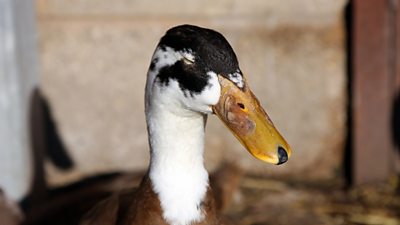
Bird Flu
Advice for staff covering the outbreak of avian 'flu in Yorkshire in 2014 -
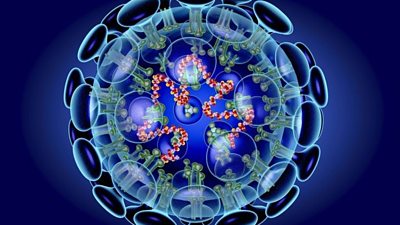
Living with Coronavirus (Covid-19) – advice for staff
Advice for staff about travel and/or interviewing guests -
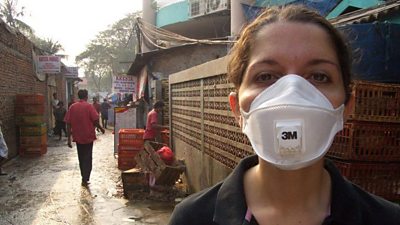
Disease and Contact with Viruses and Bacteria
A guide for anyone deployed to areas where there is risk from infectious disease from human, animal, insect or parasite sources, including zoonoses. These controls can also apply to harmful bacteria found in incidents such as sewage spills. -

Ebola Virus Disease (EVD)
Ebola is a contagious and often fatal illness which has had periodic outbreaks in the DRC and Sudan. -
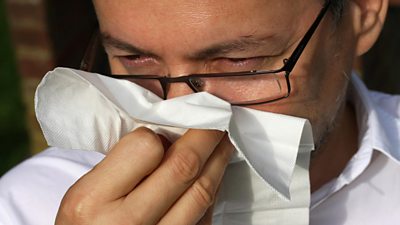
Influenza ('Flu)
A guide to influenza, or 'flu', for individuals seeking general advice or during an epidemic or pandemic situation. -

MERS: Middle East Respiratory Syndrome
This is a virus that is new to humans and was first identified in Saudi Arabia in 2012. -
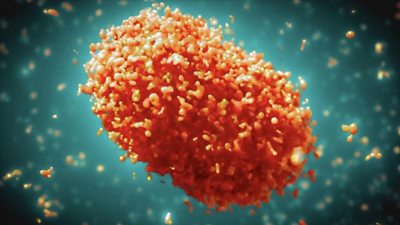
Mpox (monkeypox)
Requirements to be met for Mpox (2024) outbreak coverage and/or travelling to work in areas where there are high reported cases of Mpox. -
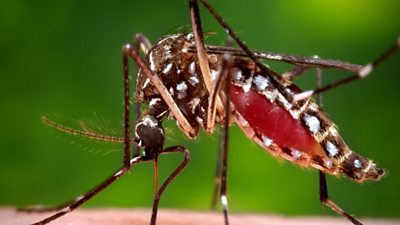
Zika Viral Disease
Zika Viral Disease is a mosquito-borne disease caused by the Zika virus. In 2015, the World Health Organisation declared it a global public health emergency.
More from SSR
-
Your platform to record accidents, risk assessments, assurance monitoring and inspections
-
Safety Equipment Stores
Just one number to call: 020 3614 5155 -
91�ȱ� Safety Guidelines
An A-Z of 91�ȱ�'s Health and Safety Guidelines -
Safety Advice Line: 0370 411 0464 Email: safety@bbc.co.uk
Events guidance - key links:
- Exhibitions
- General Guidance
- Indoor Location Recce Checklist
- Outdoor Location Recce Checklist
- Major Incidents & Emergency Planning
- Marketing and Promotional
- Noise Exposure
- Planning and Management
- Responsibilities
- Responsibilities Form
- Laser Lighting Effects
- Strobe Lighting
- Temporary Stages and Rostra
Health topics - key links:
- (91�ȱ� network only)
- Contributors Fitness to Participate
- Display Screen Equipment (DSE)
- (91�ȱ� network only)
- First Aid and Welfare on Location
- International Travel - Risks & Health
- Manual Handling
- Mental Health: 91�ȱ�page
- (91�ȱ� network only)
- Personal Health and Wellbeing
- Pregnancy
- Psychological Trauma Support & Trauma Risk Management (TRiM)
- Tiredness and Fatigue
- Travel Health Contacts
91�ȱ� High Risk - key links:
- CBRN and Industrial Spills
- Covert Filming
- Crisis Management and Security Support
- Demonstrations, Protests and Crowds
- Disaster Coverage
- Door Stepping
- (91�ȱ� network only)
- (91�ȱ� network only)
- Public Order
- Safety Equipment Stores
91�ȱ� Journalism - key links:
91�ȱ� Productions - key links:
- Aerial Filming and Airfields
- Animals: Displaying and handling for performance
- Boats: Working on
- Children and Young People
- Driving
- Electrical Equipment and Systems
- First Aid and Welfare on Location
- Food Safety (Cooking and Catering)
- Remote Location Working
- Roads and Streets: Working by
- Security of Productions on Location
- Stunts
- Tiredness and Fatigue
- Unmanned Aerial Systems (UAS aka Drones)
- Vehicles: Recording in, from and around
- Working at Height: Mobile Elevating Work Platforms
- Working at Height: Tower Scaffolds
91�ȱ� Radio - key links:
- (91�ȱ� Network only)
91�ȱ� Security - key links:
91�ȱ� Sport - key links:
About this site
This site describes what the 91�ȱ� does in relation to managing its health, safety and security risks and is intended for those who work directly for the 91�ȱ�.
It is not intended to provide instruction or guidance on how third parties should manage their risks. The 91�ȱ� cannot be held liable for how this information is interpreted or used by third parties, nor provide any assurance that adopting it would provide any measure of legal compliance. More information
Some links on this site are only accessible when connected to the 91�ȱ� network
